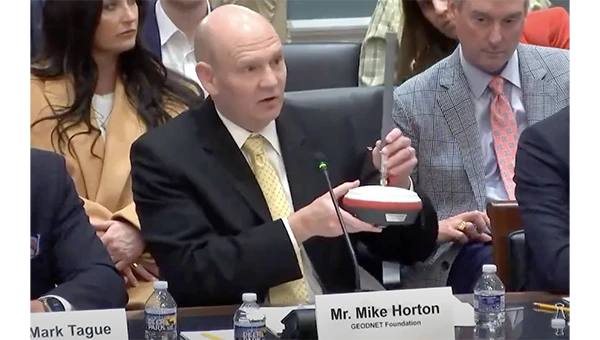
GEODNET
The mission of GEODNET is to collect rich, up-to-the-moment geospatial information from both the Earth’s surface and its atmosphere. This is made possible through innovative rooftop Space Weather stations. By employing blockchain technology, GEODNET ensures the establishment of a robust and resilient network. This network, in turn, delivers secure and trustworthy geospatial data products. These products find application in crucial sectors of the economy such as Agriculture, Transportation, and Finance. Furthermore, they cater to emerging areas like Autonomy, AR/VR, and the Metaverse.
The GEODNET stations extract satellite navigation observations to create a dataset. Once registered within the network, a capable mining node undergoes identification and evaluation by the system. Rewards are proportionally given to these miners, based on the quality of their data and the uniqueness of the location. These rewards are measured in $GEOD tokens. Each node possesses a blockchain address, thereby becoming a distinct global identifier for each data source node.
GEOD
There are currently 21,025 active GEODNET devices. The average device cost is $694.54, and the estimated daily earnings are $1.8.At this rate, the break-even point will be reached in 385 days.
Chart
Minable Devices
Device Map
Number of Devices
21,025
Number of Countries/Regions
136
GEOD Markets
Exchange | Pair | Price | Spread | +2% Depth | -2% Depth | 24h Volume | Volume % | Last Updated | Trust Score |
|---|---|---|---|---|---|---|---|---|---|
 MEXC | GEOD/USDT | $0.1401 | 0.071327% | $8,017.485 | $2,979.394 | $93,202 | 19.775% | 2 days ago | |
 Raydium (CLMM) | GEOD/SOL | $0.1400 | 0.605627% | $2,851.734 | $2,843.166 | $89,692 | 19.197% | 2 days ago | |
 Raydium (CLMM) | GEOD/USDC | $0.1398 | 0.60374% | $3,971.617 | $3,959.683 | $83,936 | 17.756% | 2 days ago | |
 Gate | GEOD/USDT | $0.1401 | 0.114253% | $9,790.706 | $16,769.84 | $69,902 | 14.816% | 2 days ago | |
 Orca | GEOD/USDC | $0.1400 | 0.604617% | $2,900.253 | $2,891.539 | $61,797 | 13.095% | 2 days ago | |
 Quickswap (v3) | GEOD/usdt0 | $0.1398 | 0.603431% | $5,857.5 | $5,839.9 | $36,560 | 7.712% | 2 days ago | |
 Uniswap V3 (Polygon) | GEOD/USDC.E | $0.1397 | 0.609053% | $966.117 | $963.214 | $7,625 | 1.618% | 2 days ago | |
 Uniswap V3 (Polygon) | GEOD/usdt0 | $0.1405 | 0.603932% | $3,606.437 | $3,595.601 | $7,031 | 1.478% | 2 days ago | |
 Meteora | GEOD/SOL | $0.1397 | 0.654644% | $131.711 | $131.315 | $6,564 | 1.386% | 2 days ago | |
 CoinEx | GEOD/USDT | $0.1408 | 0.712961% | $28.553 | $194.182 | $4,103 | 0.862% | 2 days ago |
Team



Fundraising
Learn More
GEODNET News
View more





















Social
Impressions
517,958
Engagement
7,433
Mindshare
0.08%